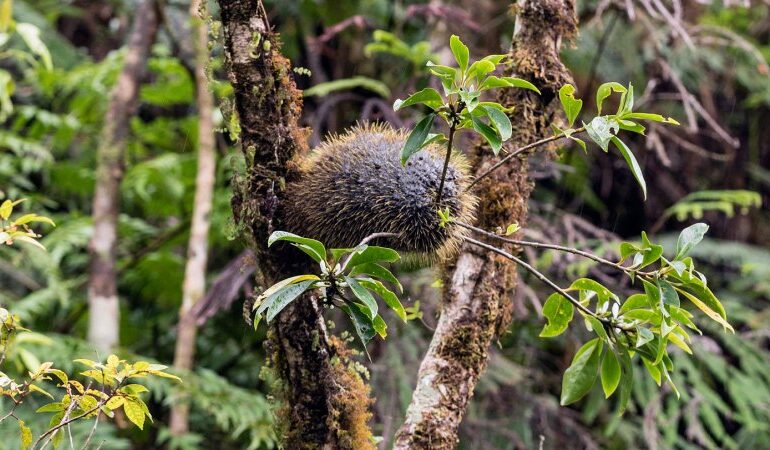Unique Plants in Fiji Foster Peace Among Warring Ant Species

In a remarkable discovery, researchers have found that certain ball-like plants in the treetops of Fiji create a unique environment that allows aggressive ant species to coexist. These plants not only provide shelter but also benefit from the ants’ droppings, which serve as valuable nutrients for their growth.
The study, led by scientists from the University of California, Berkeley, highlights how the architecture of these plants plays a crucial role in maintaining biodiversity. By providing a safe haven for different ant species, the plants effectively manage territorial disputes that would otherwise lead to conflict.
Architecture of Peace
The ball-like structure of these plants, known as Ant Gardens, features hollow chambers that create distinct living zones. Each chamber serves as a home for a different ant species, effectively separating them from one another. This innovative design minimizes direct confrontations between the ants, allowing them to thrive in an otherwise hostile environment.
The plants benefit immensely from their relationship with the ants. As the ants feed on the plant, they produce droppings rich in nitrogen, which enhances the soil quality and supports the plant’s growth. This symbiotic relationship is a prime example of how nature can foster cooperation rather than competition.
Researchers conducted their study in various locations throughout Fiji, analyzing the interactions between the plants and the resident ant species. They discovered that the presence of multiple ant species within these habitats led to increased plant health and growth rates. The findings suggest that promoting such cooperative relationships could be vital for preserving biodiversity in fragile ecosystems.
Implications for Conservation
The insights gained from this research could have significant implications for conservation efforts. Understanding how specific plant structures contribute to ecosystem harmony can inform strategies aimed at protecting endangered species and restoring damaged habitats.
Conservationists are particularly interested in these findings as they highlight the importance of preserving unique plant species that support diverse animal populations. The study emphasizes that maintaining biodiversity is not just about protecting individual species but also about understanding and nurturing the intricate relationships that exist within ecosystems.
As climate change continues to threaten habitats worldwide, the lessons learned from Fiji’s Ant Gardens could pave the way for innovative conservation practices. By fostering environments that promote coexistence, scientists and conservationists can enhance resilience in ecosystems facing unprecedented challenges.
The research, published in the journal Nature Ecology & Evolution, underscores the remarkable ways in which nature can adapt and thrive through cooperation. The study not only enriches our understanding of plant-animal interactions but also serves as a reminder of the critical role that biodiversity plays in sustaining life on Earth.






